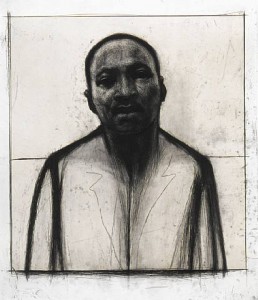 Last week marked a moment that happened forty-one years ago. The night before his murder, Martin Luther King, Jr. gave one of his incredible sermons. Some believe it was one of his greatest, others believe that he actually preached his eulogy. In his final public speech, Dr. King reminded us to resist our selfish urge to sit on the sidelines while real issues – those of violence as a national problem solving tool, how we perceive each other based upon race, and poverty – continue to matter in what we value as a nation and in the lives of the people of the world.
Last week marked a moment that happened forty-one years ago. The night before his murder, Martin Luther King, Jr. gave one of his incredible sermons. Some believe it was one of his greatest, others believe that he actually preached his eulogy. In his final public speech, Dr. King reminded us to resist our selfish urge to sit on the sidelines while real issues – those of violence as a national problem solving tool, how we perceive each other based upon race, and poverty – continue to matter in what we value as a nation and in the lives of the people of the world.
Every time I read Reverend Kinds words, I get back to the same question: What do I stand for? How do we change the world and ourselves?
He reminds me that we are human beings.
He will not let me forget the poor.
He persuades me to find and pull out enough love to change democratic institutions. His words dare me to remain hopeful – that we all, despite our station in life, our ethnicity, or our race, can fundamentally transform democratic institutions.
The “Mountaintop” speech tells me what I know: that the long term is just as important as tomorrow. I still struggle to smell the roses – to make sure I see the impact of the marathon Dr. King and others started (I hope I will know when the race is over).
Martin Luther King was a great teacher – he still inspires us to understand and to learn. He tugged at us by raising hard questions about what is right and what we value in our world. He urged us to feel the need to reconcile big questions about militaries, racism, and poverty.
The real trick for us is how we engage each other to think about these and other issues and to answer these questions through relevance. I want to capture students’ attention and imagination about national and global human rights issues. Don’t just take the word of commentators – we need more opportunities to experience each other’s lives (firsthand); have engaged conversations (and, sometimes arguments); persuade each other; consider that others may have a point of view; create beyond the bland and more of the same; collaborate; and, above all else, agree to address these issues
Dr. King reminded us that building and sustaining community is important. Addressing these issues does not happen with a few of us acting alone – especially when the ideas are only in our individual heads. The interactions found in meaningful shared experiences are important. He taught us of the value of finding unique ways to bring us into the conversation – to build connections with each other so that we can share what we know; share our efforts; and, share our resources.
Do we have the choice not to look for answers to Martin Luther King’s questions? How will we know we have successfully found answers?
Martin Luther King had great questions, but he lived in another time. What does the future of human rights look like? Can we do more than have values – can we actually value the values we hold about how we treat each other? I know there are programs and activities on campus this week dealing with a variety of human rights topics. Take the time to jump into the reflecting, the questions, the conversations, and the debates. Even better, take time to get together with others to find a way to address the issues.
Peace.
(Head Study, above by John Wilson, a Professor Emeritus of Art, at Boston University’s College of Fine Arts.)
